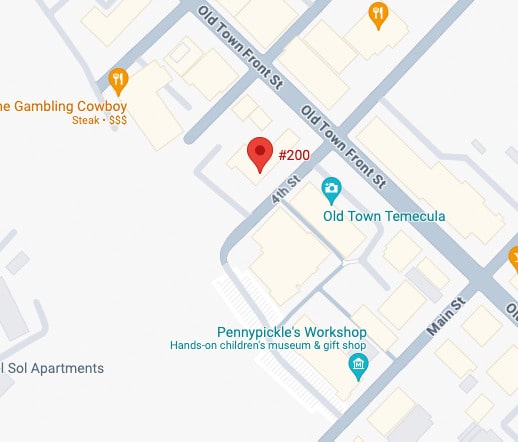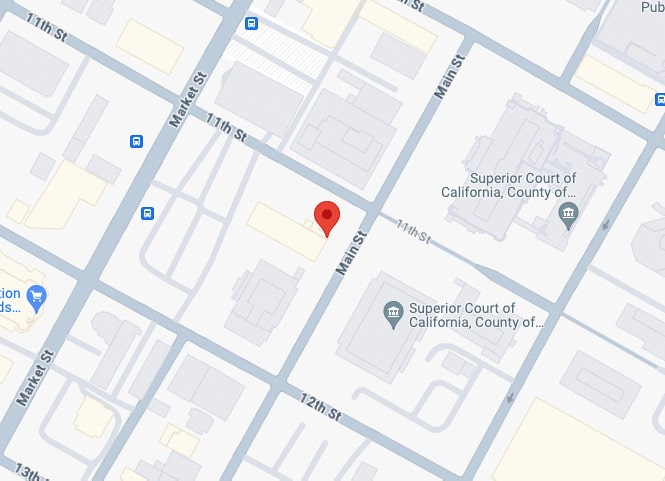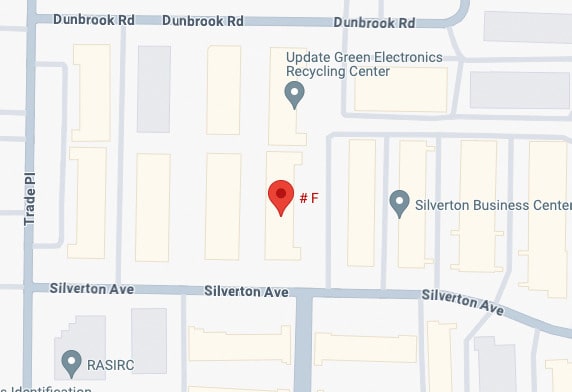When you receive bail, you are conditionally released, allowing you to be out of custody before being taken to court. This privilege depends solely on the express condition that you comply with all court‑set dates and conditions. However, there is a more important question: What happens when you violate this fundamental agreement and intentionally fail to appear in court?
By skipping bail, you will initiate a harsh chain of legal, financial, and personal consequences that may greatly aggravate your position before the law. An arrest warrant will be issued immediately, and your posted bail will be forfeited. Moreover, the bail bond company may use bail enforcement agents, commonly known as bounty hunters, to locate and arrest you. This transforms a difficult legal scenario into a far more complex and risky predicament and demonstrates how serious missing bail can be. Below is a look at the consequences you could face if you skip bail.
Bench Warrants and Bail Forfeiture Within 24 hours
Failure to appear in court as scheduled triggers a swift and severe sequence of consequences. Failure to appear is not just a missed appointment. It is a direct violation of the terms of your release on bail, which leads to a rapid and harsh cascade of legal and financial consequences.
The first and most imminent legal effect is that a bench warrant will be issued for your arrest. This warrant is an arrest warrant, which is issued directly by a judge “from the bench” as a result of your failure to obey a court order, in this case, the requirement of your appearance.
This warrant is added to local, state, and often national police databases once issued. You are immediately recategorized as a fugitive of justice. This status means that any law enforcement officer who comes across you, whether in a regular traffic stop, a background check, or anything else, is legally required to arrest you on sight.
A bench warrant typically remains active until you are arrested or the court formally withdraws it. It is open-ended until you are apprehended or the court formally withdraws the warrant. Your movement is highly curtailed, and even the most routine actions are fraught with the possible danger of instant arrest.
At the same time that the bench warrant is issued, the court will issue the bail forfeiture proceedings, a direct financial action against you because you failed to appear. The court will keep the full amount if bail was posted in cash. If you used a bail bond, the bond is forfeited, and the company becomes fully liable.
If you, or someone on your behalf, posted the full bail amount in cash with the court, the court will take the entire amount immediately. This is a full and unrecoverable loss of the bail money.
If your release was secured under a bail bond company, the procedure is more complex, and the process becomes more intricate, but no less severe. The court will officially communicate to the bail bond company that the bond has been forfeited. This bond makes the bail bond company bear all the financial consequences of your bail. The company will immediately search and bring you back into custody to reduce its loss.
This usually comes with the involvement of bail enforcement agents, who have a legal right to arrest you. Moreover, if you had a co-signer for your bail bond, they owe the full bail amount. The bail bond company will seek this debt and may even be allowed to take back any security they may have offered, be it property or any other assets, to get back the money they have spent.
Therefore, during the first 24 hours of missing bail, you are not only at risk of being denied your temporary freedom but also of paying large and sometimes irreversible amounts of money to yourself and the people who helped you escape.
Your Failure to Appear Will Burden the Bondman and the Co-Signer
Not appearing in court after posting a bail bond is not only disastrous to your current legal condition, but it is also economically crippling. This will lead to a chain reaction of financial devastation that is complicated and mostly tragic to the bail bond company and your co-signer.
Your bail is not just a promise to a bail bond company. It is a big financial surety to the court. When the court forfeits your bail, the bond company is legally responsible for paying the full amount. This is not a percentage or part fee, but the entire bond amount. The primary incentive of the business is to recoup this huge financial investment. To prevent this significant loss, they will be quick and decisive in finding you and bringing you back into custody. Their financial stability is closely related to the appearance of the defendants for whom they have posted a bond.
Bail bond companies may hire or contract with bail recovery agents to reduce their financial exposure in case of non-appearance. These are not law enforcement agents, but they have special legal authority based on the bail contract you (and your co-signer) have signed. In most jurisdictions, bounty hunters have legal authority to pursue, track, and arrest a fugitive across state lines without obtaining extra warrants because their authority is based on the initial bail contract. They employ different investigation methods, such as:
-
Surveillance
-
Searching databases
-
Interviewing your known associates to locate you
They can then use reasonable force to arrest you and take you back to the relevant authorities once they find you.
Although state-specific regulations and restrictions on the usage of excessive force or unauthorized entry into third-party premises may apply to their actions, their ultimate goal remains the same: to bring you back to court to exonerate the bond and preserve the financial interest of the bondsman.
The saddest implication of defaulting on a bail bond is on your co-signer, or indemnitor, as they are also referred to. This person typically is a family member or close friend who guarantees your appearance and puts their assets as surety to secure your pretrial release. In the case of forfeiture of the bail, the bond company will promptly look to the co-signer to make good on their losses.
The co-signer will now be liable to pay the entire amount of the bail bond and not only the premium paid. The bail bond company can legally chase them for the full amount. This could result in taking away any collateral that may have been pledged. This could include significant assets like houses, cars, bank accounts, or other valuable property. When the collateral is insufficient to cover the debt, the bail bond company can sue the co-signer to recover the balance of the debt, resulting in lawsuits, wage attachment, or liens on other properties.
This shows just how serious and even devastating the consequences of your choice to jump bail can be to the people who trusted you and risked their financial security in doing so.
Facing an Additional Charge of "Failure to Appear" (FTA)
Jumping bail is not just a formality. It is a violation of a legal commitment. It is a separate criminal offense with severe consequences. This new criminal activity is commonly referred to as Failure to Appear (FTA) or, in other terms, as bail jumping.
The nature of your original offense can easily be linked to the severity of an FTA charge. When the initial offense that you missed an appearance on is a misdemeanor, it is common to find that the FTA charge that comes about is also a misdemeanor. This means that you may end up with more possible jail time, fines, and a new line on your criminal record, in addition to your original misdemeanor.
However, the situation becomes dire when you are charged with a felony in the first place. Failing to show up in these cases is a different and an extra felony offense. This puts you in a far more dangerous legal position because you are now charged with two felonies, the existing one and the new FTA felony. Every felony is associated with significant prison terms, including fines that burden you even further with legal and financial issues.
Under Penal Code 1320.5, it is a felony to fail to appear on a felony charge upon release on bail. The consequences of a conviction are grave and include:
-
A fine of not more than $10,000
-
One to 16 months, two or three years in a state prison, or up to one year in a county jail
In cases where people are released on their own recognizance (O.R.) after being accused of a misdemeanor, Penal Code 1320 comes into play. According to the law, an individual is guilty when he/she was aware of the court date and deliberately missed the court appearance to avoid the court procedure. The punishment for this misdemeanor crime is not as serious as that of a felony and is usually:
-
A fine of up to $1,000
-
Being imprisoned at a county jail for not more than 6 months
Harming Your Original Case
When you miss your court appearance after posting bail or your own recognizance, the effect on your original legal status is severe and, in most cases, irreparable. This will profoundly change how judges and prosecutors view you, placing you at a serious strategic disadvantage.
The most immediate consequence is a loss of credibility. Judges and prosecutors will view you as a serious flight risk and disrespectful of court authority. This breach of trust destroys any indulgence or tolerance that may have been there before.
The most palpable effect is the loss of a second bail opportunity. If you are arrested following an FTA, there is hardly a chance that a judge can bail you out once more. You will likely spend time in custody without bond until your case is completely disposed of. This translates to an extended stay in jail on your part, irrespective of the virtues of your initial case, and significantly undermines your chances of helping defend yourself.
Moreover, non-appearance seriously blows your bargaining status in any plea bargaining deals. Prosecutors, who could have been willing before to give you a favorable plea bargain, become much less willing to compromise. You will have proven unreliable and disrespectful to the legal process, eliminating any real room to negotiate with you. The prosecutor will be better positioned to know that you are a flight risk and have already complicated your legal problems. Therefore, a lighter offer is less attractive or unnecessary on the part of the prosecution.
You Will Face Long-Term Consequences of Having a Warrant
An open warrant hanging over your head has long-reaching, life-changing ramifications that can drastically restrict your freedom and opportunities. This makes you, in effect, a fugitive from justice, even though you may not be running away.
The first and the most dreadful is the fear of being arrested all the time. Any encounter with law enforcement, regardless of how trivial it might be, for example, a regular traffic stop, a random ID check, or even witnessing an event in progress, will probably lead to your immediate arrest.
It is possible that you may be arrested at work, in the presence of your family members, or when you are doing errands, and this may cause you humiliation and a significant imbalance in your life.
In addition to the risk of being arrested on the spot, you will encounter many administrative obstacles. You might not be able to renew your driver's license, an action that could have a devastating effect on your capacity to work or even cope with life. Applying for some professional licenses that may demand intensive background checks will be impossible. On the same note, employment background checks will be a significant obstacle, and active warrants are likely to feature on the background checks, which will raise a red flag to potential employers and reduce your chances of employment.
It is important to note that warrants are not confined to the state where they were issued. They are often put into national databases, like the National Crime Information Center (NCIC). This means that if you have an outstanding warrant, you are subject to arrest in any of the states of the United States. You cannot hide in another state forever. The legal system is long, and your fugitive status will haunt you; you will never be able to live an everyday life without the fear of being caught at any time.
I Had Already Missed Court. What Can I Do?
You would be in a critical situation, but there is a way out, provided you have missed your court date and now have an active warrant. The best thing you can do is to take immediate, proactive steps to address it.
-
Do not keep running — The first and foremost thing to realize is that the problem will only worsen daily if you do not address it. The warrants never expire, but will only be active until you clear them. The consequences of doing nothing will be even worse, with further charges, a longer stay in jail once you are arrested, and the loss of credibility with the court.
-
Call a criminal defense attorney as soon as possible — This is the most crucial step. You will have help from a professional criminal defense attorney to guide you through the process. They can verify the presence of your warrant and its information, tell you your exact charges, and, most importantly, frequently negotiate a settlement without your immediate arrest by police or a bounty hunter. A lawyer may approach the court, showing you are willing to take care of the problem responsibly.
-
Warrant recall — Your attorney may file a motion to quash or recall the warrant and negotiate a voluntary surrender to mitigate penalties. It is done by filing a motion with the court to have the bench warrant recalled. Your attorney can even appear in court in your place and argue the recall in many misdemeanor cases, possibly without you having to appear in person and risk being arrested on the spot. In felony cases, you will probably have to come in, and your lawyer can negotiate a voluntary turn-in at a convenient time and place that causes the least inconvenience and humiliation. This can result in a better deal than being caught unawares. This will demonstrate to the court that you are taking matters into your own hands and are prepared to meet your legal responsibilities, which can go a long way in your favor.
Find a Bail Bondsman Near Me
Not appearing in court after posting bail is not just skipping an appointment, but is also a serious crime that can have many serious, life-changing repercussions. Whether it is a new felony charge, a "fugitive of justice" status, the ever-present fear of being arrested, or serious administrative obstacles to your freedom, missing court may follow you across state borders and decades later.
Do not let a warrant control your life. Reclaim control and get professional help right away. Call Justice Bail Bonds today at 714-541-1155. Our Temecula team will help you know what you can do and start working on clearing your warrant so you can confront your legal issues squarely and face a bright future.









